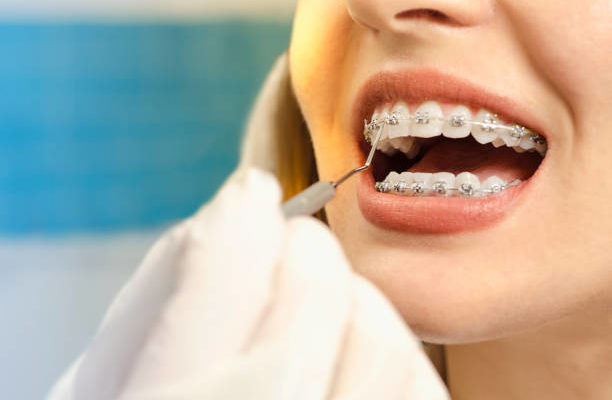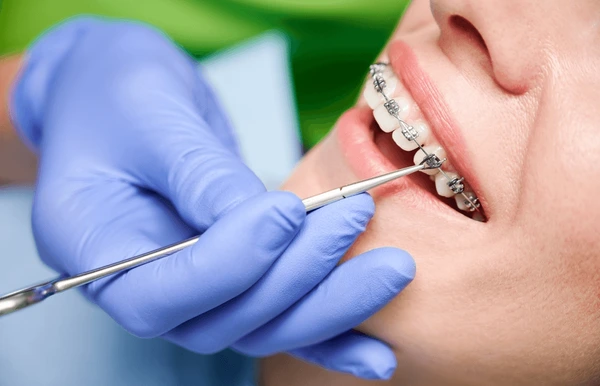
Choosing an orthodontist in Geneva: 5 practical tips for a dazzling smile
A healthy, aligned smile is an important investment in your well-being and self-confidence. In Geneva, many professionals offer orthodontic treatment, but how can you be sure you're making the right choice? This article guides you through 5 practical tips for selecting the ideal orthodontist, the one who will meet your specific needs and guide you towards the smile you've always dreamed of.
1. Check qualifications and specific expertise in orthodontics
The first essential step is to ascertain the qualifications and expertise of the orthodontist. In Switzerland, the profession is regulated, but it's crucial to distinguish between a general dentist offering orthodontic treatment and an orthodontic specialist.
Specialist expertise in orthodontics: Three years' full-time, in-depth, specialist training in a hospital environment (accessible via a highly selective competitive examination), preceded by a course of dentistry, enables us to offer treatments that are more appropriate and more complex than those offered by many non-specialist dentists, who only train through private courses. This hospital experience guarantees that we can handle a wide range of complex cases, in an environment where rigor and expertise are paramount. In addition, regular participation in various congresses enables the dentist to constantly broaden his or her field of expertise.
Don't hesitate to ask questions about the orthodontist's specific training, his or her experience in treating cases similar to yours, and whether he or she is a member of recognized orthodontic societies.
This will ensure that your treatment is in the hands of a highly qualified professional.
2. Evaluate the firm's experience and specializations
Beyond individual qualifications, the overall experience of the orthodontic practice is an important factor. A practice that has been established for many years is likely to have handled a wide variety of cases and developed a solid expertise.
Find out more about the types of treatment available. A modern practice should offer a full range of options, from traditional braces to more discreet techniques such as lingual orthodontics and clear aligners. A specialized practice may also have developed particular expertise in the treatment of complex or specific cases (for example, pediatric orthodontics or treatments combined with maxillofacial surgery ).
Sharing knowledge and continuous innovation: Our involvement in the training of future specialists means that we are constantly informed about best practices and innovations in orthodontics. This ensures optimal, high-quality care for our patients.
3. Consider the technology and techniques used
Orthodontics has evolved considerably in recent years, with new technologies and techniques making treatment more effective, comfortable and aesthetically pleasing.
Find out about the technologies used by the practice. 3D imaging, for example, enables more accurate diagnosis and more personalized treatment planning. Indirect bonding techniques for brackets can reduce chair time. The use of modern materials for brackets and wires can improve comfort and reduce treatment time.
Cutting-edge technology for personalized treatment: A good dental center must be equipped with the latest technology, enabling us to treat patients with the three main techniques: vestibular orthodontics, lingual orthodontics and aligners. Each treatment is designed to deliver high quality aesthetic and functional results, whether for children, adolescents or adults, through gentle, reassuring and tailored management, to ensure a positive and serene patient experience throughout.

4. The importance of human contact and communication
Orthodontic treatment can last several months, even years. So it's essential that you feel at ease with your orthodontist and his team. A good orthodontist will take the time to listen to you, answer your questions clearly and explain the different stages of treatment.
During your first consultation, evaluate the communication and human contact. Is the orthodontist attentive to your concerns? Does he or she clearly explain the treatment plan, and the advantages and disadvantages of the various options? Is the team friendly and professional? A good relationship based on trust is essential for a successful treatment.
Feel free to ask any questions you may have about treatment, duration, cost, constraints, etc. A transparent and communicative orthodontist will put you at ease and allow you to approach the treatment with peace of mind.
5. Take location and practicality into account
While expertise is paramount, the location of the orthodontic practice is also a factor to consider, especially if you have time or mobility constraints. An office that is easily accessible from your home, workplace or your children's school will facilitate regular appointments.
You should also find out about the practice's opening hours, how to make an appointment, and the payment facilities on offer. These practical aspects can have a significant impact on your overall treatment experience.
Choosing an orthodontist in Geneva is an important decision that deserves careful consideration.
By following these 5 practical tips, you'll be better equipped to find the professional who can help you achieve a harmonious smile and better oral health.
Choosing your orthodontist in Geneva at Centre Dentaire Chêne-Bourg
Don't wait any longer to take care of your smile. Contact the Centre Dentaire Chêne-Bourg today for an initial consultation. Our team of experts will be happy to answer your questions and propose a personalized treatment plan tailored to your needs and expectations.
Discover also the Centre Dentaire Lancy and the Centre Dentaire Champel





